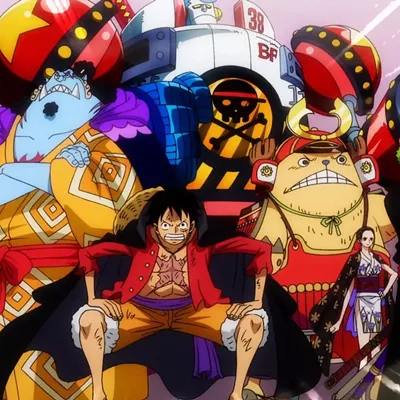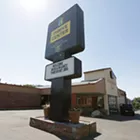
The first of many minivans loaded with discount, assemble-it-yourself furniture is cruising through the Cougar-flag-lined streets toward the Washington State University campus. On the steps of sorority houses, young women who’ve arrived an entire week before classes begin are dressed in their finest and waiting in silence for rush to begin. Heavy bass beats ricochet from open dorm windows. Restaurants and bars are welcoming students on their respective reader boards. Finally, after slumbering through summer, the little college town is coming to life.
Near the middle of campus, however, things came to life two weeks earlier. It’s there that an air horn blasts through the already-steamy morning air. Follow the sound and you’ll find an artificial playing surface where the 13th practice of the WSU football program’s summer camp is well under way. When the horn sounds, players hustle to a different part of the field and immediately know what they’re doing. It’s both chaotic and refined. Sometimes it’s boisterous, then it can turn still and silent at the sound of a whistle.
The far sidelines have the look of a circus show. A pair of offensive linemen pound away at a tractor tire with sledgehammers. Another player whips massive ropes back and forth while his nearby teammate pedals on a stationary bike. Down from them is a 40-yard-wide sandpit that puts off a weird scent of past punishment.
It should look and feel like any other college football practice except, for some reason, it doesn’t at all. At the center of all this insanity is a man you’d be forgiven for overlooking. He’s one of the shorter coaches, and his gut hangs out a bit over the top of too-long cargo shorts, just as his mostly graying locks escape the sides of his baseball cap.
This is Coach Mike Leach, and he probably doesn’t care that you just made fun of his shorts. He’s got other things on his mind. He’s new to Pullman and he’s here to score the ball with a frequency and creativity this town has never seen. He was away from the game for two years, but that was enough. Leach is ready to get back to business. He knows you haven’t cared much about Cougar football in about a decade. He’s here to change that.
When Mike Leach calls you, there’s no greeting. No “hello” or “hi there” before he introduces himself. It’s merely “Mike Leach returning your call.”
But you haven’t called him, because he doesn’t work that way. You’re told to text him — because, you’re told, he doesn’t have voicemail — and at some point he will call you back. This is different, but it works; which is a great way of explaining how Leach goes about doing most things in his life.
This is a guy who never played a down of college football (and was only a marginal player during his high school days in Wyoming), but worked his way to win a national Coach of the Year honor at Texas Tech back in 2008. He holds a degree in law and counts Matthew McConaughey as a close, personal friend. He’s a sportsman and an author and a radio personality and an authority on the history of pirates, a bit of a Renaissance man who tweets about foreign films and the street artwork of Banksy.
At 51, he’s also the creator of one of the most potent passing offenses in the history of college football. He could be one of the most talked about, written about coaches in the game. But, on the other hand, Leach was also fired from Texas Tech after one of his players — the son of an ESPN analyst and former NFL star — claimed that Leach ordered him to stay in a dark closet during practices. It’s for this reason that some would say hiring Leach was controversial.
Still, in December, Washington State, having won a mere nine games over the past four seasons, announced it was going to bring in Leach as head coach. Leach replaced Paul Wulff, whose awkward public persona and sleepy offensive mentality couldn’t have been further from Leach’s; Wulff was the Barnie Fife to Leach’s Walker Texas Ranger. Or something like that.
So after guaranteeing a $2.25 million paycheck — more than four times what Wulff was paid — Leach took the reigns of a program loaded with history but no bowl appearances since 2003. It’s been so-far-so-good up to this point. Leach says he’s enjoying Pullman and living in the Northwest — that’s before his tangential conversational style takes him on a meditation of the Northwest as a whole.
“If the Northwest is ocean salmon and totem poles, then I haven’t been to the Northwest,” says Leach. “But if the Northwest is mountains and a little bit of snow and a lot of animals in the woods, then I’m an expert on it.”
His players have come to appreciate these mini philosophy and history lessons.
“He just knows everything about everything. He loves to talk. It’s always football related, but he finds a way to venture off into other things he knows about, so it’s always entertaining,” senior wide receiver Gino Simone says.
As distant as his thoughts might seem at times, they all tend to circle back to football. When it comes to the game, Leach, for all the quirks and larger-than-life traits associated with him, is all about business. Before summer camp even began he dismissed three probable starters from the team for off-the-field violations of team policy, including criminal offenses.
“There are certain core values you need to have as a team, and there are some things you can’t compromise on,” says Leach.
Players say that the squad has quickly adjusted to the demands of its new coach.
“I think your team is always going to take on the mentality of our coach. With Coach Leach, you obviously see confidence and it’s rubbed off on us, and we believe in ourselves and that we have the right guys in place,” Simone says.
In short, he’s saying that the Cougars have picked up some of Leach’s trademark swagger — and it shows. On the field, Leach is insistent that he gets everything from his players. That sandpit, dubbed the “Leach Beach,” is part of this. Players train in the soft surface during the preseason, building up muscle and stamina.
“They’re fatigued, and that’s by design. If they weren’t fatigued we’d have them do it even more. The idea is to get folks fatigued so they learn how hard they can work. Everyone can work harder than they think they can,” says Leach.
His players at Texas Tech were known to be some of the best conditioned in the game. Considering the amount of streaking up and down the field they did with Leach’s spread-it-out-and-toss-it-long offense, such conditioning seemed necessary.
“As you go through practice what you’re really trying to instill is playing as hard as you possibly can and precise as you possibly can for every single play,” Leach says. “You’re not going to get perfect, so there’s steady improvement to be had with that.”
It’s at times difficult to discern whether Leach is talking football or life philosophy. Hell, Leach himself might not even know.
But it’s this philosophy that WSU Athletic Director Bill Moos wanted to bring to the school. The hiring of Leach is part of a larger effort at WSU that might already be showing signs of success.
“The whole culture of our department needed to change. We can only be as good as we think we can be,” says Moos, a WSU alum who was athletic director at the mighty University of Oregon before coming to Pullman in 2010.
“We have to have a championship mentality,” he says. “We have to believe what we’re selling to players and recruits. That’s, again, a work in progress.”
That work is very much in progress and was in progress before Leach came on board. WSU is in the process of getting back into big-time college football after its string of dismal seasons, which have faded memories of the Rose Bowl in the minds of alumni, boosters and fans.
Moos says that since Leach was hired, fundraising for the athletic department is up $3 million, and 4,000 additional season tickets have been sold. This helps at a time when the university is in the middle of a $80 million renovation of Martin Stadium, the football team’s cozy, but previously unimpressive (in comparison to the rest of the Pac 12) home. Now a “Wave the Flag” advertising campaign has made this the most visible Cougars football season in nine years. And the ball hasn’t even kicked off yet.
Make no mistake: WSU is getting back into the business of Big Football.
On Dec. 30, 2009, Texas Tech fired Leach — the program’s leader in career wins — just three days before the Red Raiders were to square off with Michigan State in the Alamo Bowl. Two weeks prior, Leach had been accused by the family of wide receiver Adam James, the son of former NFL running back and ESPN commentator Craig James, of locking the younger James in a utility closet after he’d been sidelined with a concussion.
Leach immediately disputed the claim. He told media outlets that James — whom he and former Tech players characterized in Leach’s 2011 book, Swing Your Sword, as unmotivated, entitled and a distraction to the rest of the team — was never locked in any closet. Rather, Leach says he just asked that James, who had suffered a concussion at an earlier practice, be taken away from the field to get out of the sunlight, which can be harmful to someone with a concussion. The team trainer acknowledged asking him to go into a media room, but not into an electrical closet. James, under oath in a deposition, admitted that he went into the closet on his own, where he shot a video that eventually became public.
Immediately, Craig James — who Leach says constantly lobbied for more playing time for his son — alerted school administrators, who launched an investigation. The story caught fire on ESPN and other outlets as the university tried to piece together the truth. The school’s board of regents asked Leach to sign a letter apologizing for the mistreatment of James, but he refused. Soon he was fired — just a day before he was due $800,000 in tenure bonuses.
“A whole lot of the shady stuff that happened at Texas Tech — that was Texas politics at its worst. It was dubious and sleazy,” says Leach, who continued to battle Texas Tech in court for his payment up until February of this year.
(Incidentally, Craig James tried his hand at Texas politics earlier this year, receiving just 4 percent of the vote in the Republican primary race for U.S. Sen. Kay Bailey Hutchison’s soon-to-be-open seat.)
Leach spent the next two years keeping busy with other endeavors, including consulting with other football teams, appearing on a national radio show, calling games for CBS Sports and writing his book. He also appeared in an episode of friend Peter Berg’s television series, Friday Night Lights. Leach essentially played a version of himself: a wild-eyed football philosopher whose few lines mostly revolve around how to swing your sword like a pirate.
During this time, Leach — who acknowledged he enjoyed pursuing non-coaching hobbies — says he never thought about giving up on football.
“Coaching is not something you can sit out a long time and come back when you’re 60 or something,” Leach says. “These are my best years, and if I’m serious about coaching, I better do it now.”
Athletic Director Bill Moos says he was obviously aware of the tumult surrounding Leach’s firing, but he was able to put any apprehension to rest.
“I was comfortable coming out of our conversations that his description of what happened and what was in his book was accurate. He’s a man of integrity and quality,” says Moos.
Nevertheless, WSU is investing in big-time college football at a time when many associate big-time college football with one of the worst scandals in sports history — Penn State’s child molestation tragedy. Penn State reminded us of what happens when football becomes bigger than a university itself; but with cash rolling in, and fans and alumni coming back to the fold in droves, how do you protect from becoming too big?
“Everything needs to be put in proper context. Intercollegiate athletics is an arm of the university for students to get a proper education and perfect their art. In this case, that’s athletics. Certainly it serves as a front window to the institution,” says Moos. “Your moral compass can start to waver when you lose context of that.”
Leach calls those who perpetrated the horrors against children at Penn State — and those who covered it up — “criminals that you need to put in jail.” He sees college football as a constantly changing medium and one that’s headed in an interesting direction. If you want to know what direction he’d personally take it, just get him going on his plan for a 64-team college football playoff. At the same time, he doesn’t subscribe to the idea that football teams should exist on level between the university and God.
“I don’t think you want to be too insular,” says Leach. “To me, it’s not just about patrolling against wrongdoing, but you don’t want to be so isolated that you don’t experience what’s going on around you.”
Gabe Marks is exhausted. A half hour earlier, he snagged a one-handed catch in the corner of the end zone on a deep ball thrown from presumptive starting quarterback Jeff Tuel. He hooted and hollered, tossing a few choice words in for the defender he’d just burned, then sprinted back to the huddle. This is the third week of college football for the freshman from Los Angeles, and he’s put in a hell of a lot of work because that’s what Leach requires, he says.
“The first day he got in the door, he earned our respect just by what he’d done at Texas Tech,” says Marks. “We all know we’re going to win games with him as our coach. If he tells you to do something once, you’re going to do it.”
Marks then makes his way off the field with a stride somewhere between a limp and a slow walk. Others are moving at a similar pace and gait. Again, this is all by design. They’re supposed to be exhausted.
Behind him, Leach is fielding questions from the press, most of which are about specific things from the recently concluded practice, and he gives short, succinct answers. The day prior, though, a blogger informed him that it was Shark Week on the Discovery Channel, and he went on for minutes about the time he and his staff were in Key West. Leach and others were swimming as others absentmindedly tossed a bunch of discarded fried chicken bones into the water.
Soon, Leach was surrounded by sharks. He survived to tell the tale because he had a plan to get back to the boat. This is a guy whose philosophy on surviving a shark attack, building a career, defending his personal reputation and, of course, coaching football, is best described by something he says a few days later:
“When you get on the sideline, the other guy is trying to present a lot of problems and you’re trying to solve them and attack them.”
Washington State’s season opener vs. BYU • Thu, Aug. 30 at 7:15 pm in Provo, Utah • Televised on ESPN • For Cougar home game tickets visit wsucougars.com















